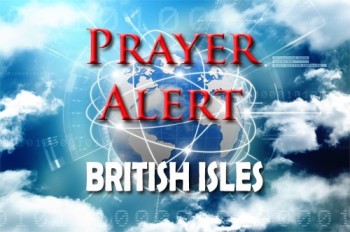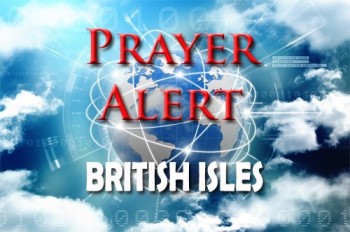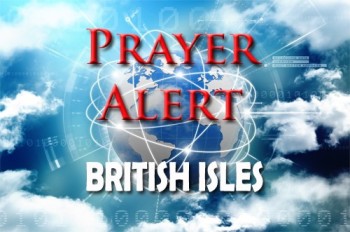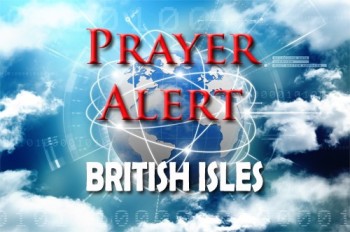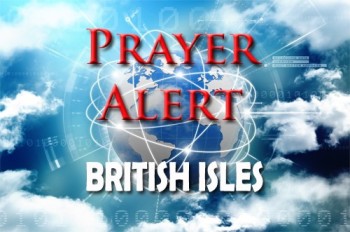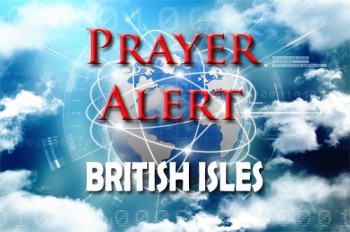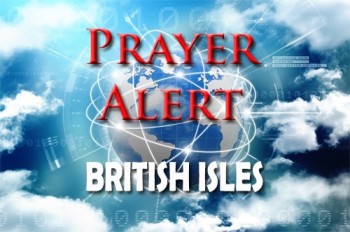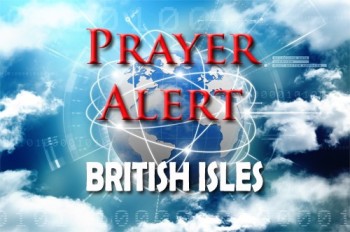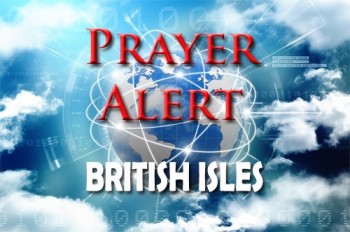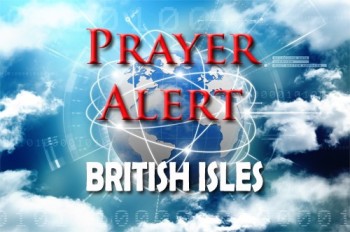Displaying items by tag: United Kingdom
Israel condemns Keir Starmer over plan to recognise Palestine
UK Prime Minister Keir Starmer has announced that Britain will recognise a Palestinian state at the UN General Assembly in September unless Israel halts its actions in Gaza and commits to a two-state solution. Citing widespread suffering, including starving children and destroyed communities, Starmer issued an ultimatum: Israel must agree to a ceasefire, permit humanitarian aid, and halt annexation plans in the West Bank. The move, backed by France and a large number of Labour MPs, drew sharp condemnation from Israel’s Prime Minister Netanyahu, who called it a reward for terrorism and warned it could endanger global security. The United States also expressed concern, with President Trump saying the decision risks rewarding Hamas. Foreign Secretary David Lammy added that Britain has a historic responsibility, referencing the Balfour Declaration, and insisted that the two-state solution remains the only path to peace. Critics of Israel’s current actions view the recognition as a moral imperative. Starmer has launched a diplomatic effort to rally global support ahead of September, signalling a dramatic shift in UK foreign policy. See
IMF: ‘Bank of England must cut interest rates to save UK economy’
The International Monetary Fund (IMF) has urged the Bank of England to cut interest rates at least twice more in 2025 to support the UK economy. The Bank’s base rate currently stands at 4.25%, down from a post-Covid peak of 5.25%, following efforts to reduce inflation, which has now eased to 3.6%. Despite slight improvements in GDP projections - 1.2% for 2025 and 1.4% for 2026 - the IMF warned that global trade uncertainty and fiscal deficits could disrupt recovery. Chancellor Rachel Reeves welcomed the UK’s position as the fastest-growing G7 economy in Europe but faces criticism over recent tax increases, including higher National Insurance contributions and the extension of inheritance tax to pensions. Bank Governor Andrew Bailey suggested these tax hikes may be dampening business investment and wage growth. The IMF highlighted risks of financial market volatility and called for a cautious yet responsive approach. As global economic pressures persist, the UK must balance fiscal discipline with growth-friendly policies that promote employment, investment, and long-term stability. See
DWP benefit cuts hit people with Parkinson's and MS
The UK Government is facing pressure to widen access to its proposed “top tier” sickness benefits, following concerns that people with fluctuating conditions such as Parkinson’s and multiple sclerosis (MS) may be unfairly excluded. Under current Department for Work and Pensions (DWP) proposals, only those whose symptoms “constantly” prevent work would qualify for enhanced universal credit and be exempt from regular medical reassessments. Labour MP Graeme Downie has tabled an amendment to expand eligibility to those with “evolving” or fluctuating conditions. He argues that the cost of living with conditions like Parkinson’s - where even simple daily tasks may require expensive alternatives - requires consistent financial support. Parkinson’s UK and other campaigners support the change, warning that current criteria fail to reflect the live realities of such illnesses. While ministers have agreed to remove similar restrictive clauses from the personal independence payment (PIP) system, the universal credit health element still raises concern. With cross-party backing, the amendment seeks to ensure compassion and fairness for those whose disabilities vary in severity from hour to hour.
Tommy Robinson: Police investigate alleged assault
Police are investigating an alleged assault at St Pancras International station in London after video footage surfaced showing right-wing activist Tommy Robinson, whose real name is Stephen Yaxley-Lennon, near a man lying motionless on the floor. The incident occurred on Monday evening around 8:40 p.m. A man was taken to hospital with serious but non-life-threatening injuries. British Transport Police confirmed they are seeking to question a 42-year-old man from Bedfordshire who reportedly left the country on a flight early Tuesday morning. The video, circulating widely online, does not show the alleged moment of assault, but captures Robinson pacing near the injured man and shouting to onlookers that he acted in self-defence. Robinson has since reposted a tweet asserting that he was attacked first. Police continue to review the footage and work to locate the suspect. The incident has sparked renewed public debate over Robinson’s controversial public presence and past criminal record. Authorities urge anyone with additional information or footage to come forward to assist with the ongoing investigation.
Repair ‘social fabric’ or risk repeat of summer riots, says No 10
Keir Starmer has warned his cabinet of growing civil unrest if urgent action isn’t taken to restore Britain’s 'fraying' social cohesion. At a recent cabinet awayday, Starmer and Deputy PM Angela Rayner urged ministers to address the rising tensions caused by rapid immigration, stagnant living standards, and strained public services. The warnings follow violent protests in Essex and last summer’s Southport riots, which were fuelled by anger over crime and asylum policies. Starmer emphasised the need to restore trust and improve integration, while Rayner highlighted the deepening impact of economic insecurity and community isolation. Calls are increasing for a stronger focus on law and order, better housing policy, and support for deprived neighbourhoods. As protest activity increases, including threats of far-right involvement, concerns are mounting about the government's ability to defuse tensions. Ministers acknowledge a need for action to prevent further breakdowns in community resilience and unity. The government is now under pressure to balance national security concerns with addressing widespread social discontent.
UK foreign aid cuts to hit Africa hard
The Government has confirmed sweeping cuts to foreign aid, reducing spending from 0.5% to 0.3% of gross national income to prioritise defence. The deepest reductions will affect Africa, particularly in vital areas such as children's education, women's health, and water sanitation, raising fears of increased disease and death. Bond, a UK coalition of aid organisations, warned that the most marginalised, especially women and children in conflict-affected regions like South Sudan, Ethiopia, and Somalia, will suffer most. Despite claims of a strategic, targeted review, critics argue the government is deprioritising areas like gender equality and humanitarian crises. The UK will maintain funding for certain multilateral partners, including the World Bank’s International Development Association and the Gavi vaccine alliance, while threatening cuts to underperforming global institutions. Aid advocates call for a renewed commitment to protecting vulnerable lives, accusing ministers of prioritising political interests over human dignity. These cuts come amid public scepticism over aid spending and international calls for the UK to do more, not less.
Small boat people smugglers to have assets frozen and face UK ban
The UK government has announced sweeping new sanctions targeting the global network behind small boat crossings in the Channel. Over 20 individuals and companies involved in people smuggling are expected to be named, including gang leaders, corrupt officials, and suppliers of boats, engines, and forged documents. Sanctioned individuals will face asset freezes and UK bans, making it illegal for UK businesses or banks to work with them. Foreign Secretary David Lammy stated the move aims to hit the 'men in suits' driving this multi-billion-dollar criminal trade. The crackdown includes those using legal money transfer systems, such as Hawala, to finance operations. This comes as the Border Security, Asylum and Immigration Bill moves through Parliament, introducing new offences and counterterror-style powers. A 'one in, one out' pilot with France will also attempt to manage arrivals via safe, legal routes. While challenges remain, the UK is urging its G7 allies to adopt similar sanctions and bolster international resolve against this destructive trade.
Five-day doctor strike will go ahead, says BMA
A five-day strike by resident doctors (formerly known as junior doctors) in England will proceed starting 25 July, following talks between the British Medical Association (BMA) and the Government that failed to produce a resolution. Despite five days of discussion, the BMA stated that no credible offer for pay restoration was made. Health secretary Wes Streeting urged the union to postpone the strike, promising to continue talks, but the BMA maintained that pay remains central to the dispute. The Government offered non-pay improvements, such as exam fee coverage, greater rota transparency, and potential student loan forgiveness, but could not offer further pay increases. Resident doctors received a 5.4% pay rise this year, following a 22% increase over the past two years. However, the BMA argues real-terms pay remains 20% lower than in 2008. NHS England is attempting to limit disruption by restricting the cancellation of non-urgent treatments, a move some doctors warn could jeopardise safety. The strike risks renewed pressure on an already strained health system.
‘A crisis boiling over’: Essex community divided over violent migrant protests
Epping, a historic Essex town, remains divided following ten days of protests outside the Bell Hotel, which houses asylum seekers. Tensions erupted after an Ethiopian resident was charged with sexual assault, prompting both peaceful demonstrations and violent clashes. Smoke flares, injuries to police, and arrests followed, with far-right figures reported among the protestors. While some locals insist the protests were motivated by child safety concerns, not race, others fear Epping is being manipulated by outsiders stirring hate. A growing police presence and physical barriers now surround the hotel, with more demonstrations expected. Local MP Dr Neil Hudson has urged the government to close the hotel and condemned violence as 'deeply troubling.' Residents voice mixed views - some fearful and disturbed, others dismissing the unrest as exaggerated by the media. The charity Hope Not Hate warns that far-right groups are exploiting community tensions to spread division. Amid growing anxiety and fractured public opinion, many call for the legal process to be respected and for peace to be restored to the community.
Minehead: Community's pain after deadly school bus crash
Minehead is mourning the loss of a 10-year-old boy after a tragic school bus crash injured several others. The bus, carrying over 60 students and staff, veered off the road while returning from a trip to the zoo. Churches in the town have responded swiftly, offering prayer, pastoral care, and safe spaces for grieving. Tommy Pratt, a trainee minister at Minehead Baptist Church, described the incident’s deep impact on the close-knit community. Church members with ties to the school were among those affected, and many locals are still 'processing' the shock. Churches across denominations are coordinating efforts to support families, school staff, and medical workers. The Hub café has opened its doors for prayer and conversation, and churches are preparing Sunday services with space for lament and reflection. A GoFundMe appeal has raised over £15,000 for affected families. Amid sorrow, the community’s unified and compassionate response has become a source of strength. Church leaders are praying for God’s peace, healing, and comfort during this time of collective grief.
